With the City Council election coming up in May, incumbent Bob Westbrook is hoping to hold his district 5 seat against newcomer Kenith Freeman. The Tyler Loop’s executive director Jane Neal spoke with Westbrook in an in-depth interview. You can read Freeman’s interview by Zoe McGhee here.
Westbrook chairs the Tyler Area Partnership 4 Education and is a board director of Tyler Innovation Pipeline. He owned three local restaurants of the Cici’s Pizza franchise for 19 years. He is seeking his third and final term as councilman.
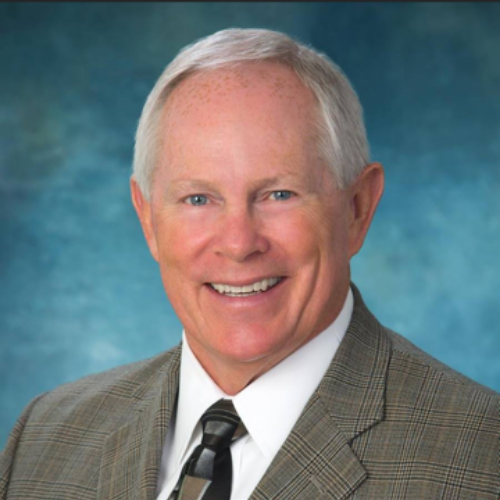
Here, Westbrook tells The Loop what he believes are foundational pieces to a strong city: infrastructure, higher education, a culture of voting, nonpartisan collaboration and finding solutions while remaining fiscally conservative.
Early voting for the election begins on April 19 through 27, with Election Day on May 1.
Would you describe the parameters of district five, some of its aspects and unique needs?
Roughly geographically it’s Fifth Street south, Paluxy Drive east. So it’s that southeast quadrant of the city.
[There are] roughly 16,000 voters registered voters in that district.
The university is probably the largest economic driver in my district. There’s also The Hibbs Institute; it’s just a tremendous engine. I’ve got quite a few retirees in my area. The Woods neighborhood is the largest voting block in the district. And it’s either the first or the second voting largest voting block in the city because of the concentration of homes.
[District 5] is an older demographic. When you get away from the university it’s more mature and higher educated than a couple of other areas in the city. There is also some industry, like Trane, in the corridor down 110.
And I have the Golden Road Water Treatment Plant in my district, which we just completely refurbed and expanded the capacity on. We actually have produced the freshest and highest quality water in Tyler Smith County. The treatment plant has been given a superior water system ranking for years and years.
What issues are district 5 facing?
If we’ve got some issues, it’s with infrastructure, and not just with wastewater when we discuss the EPA consent decree. We’ve got some aging infrastructure with streets and water lines. While we’re making repairs to the waste water system, we’ll also evaluate the fresh water system.
We also have some drainage issues. We’ve really enjoyed all the benefits of Tyler, and we haven’t spent a lot of money on infrastructure. And so that’s the reason for the consent decree and the aging freshwater lines. It also is impacted through storm water runoff.
If we can’t provide wastewater treatment for housing developments, industrial or business parks or new schools, it limits the ability for Tyler to grow.
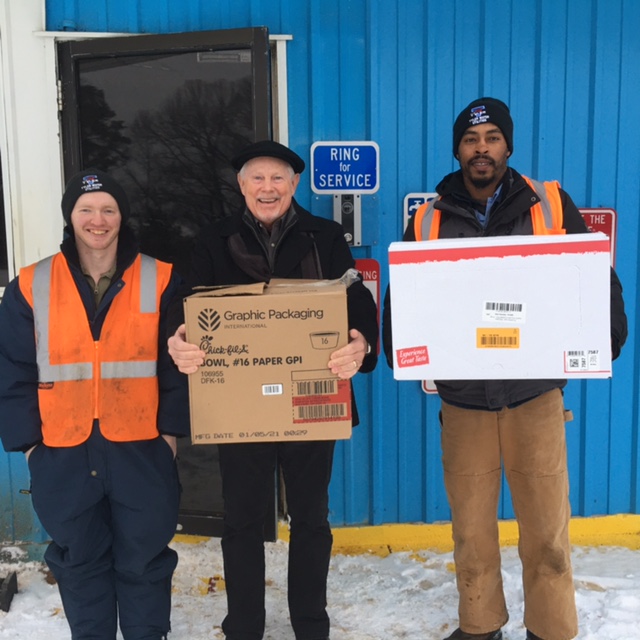
It sounds like infrastructure is what’s really on your mind.
Well, it lays the foundation for economic development. If you have great infrastructure, you’ll all of a sudden start attracting more home building, more industrial or business uses — whether it’s retail or industrial.
I’ve got two projects that are going to occur in my district. I’ve got the Rhones Quarter extension and widening all the way down to 346 in Whitehouse, and then I’ve got the Paluxy widening and extension all the way down to 344. They’re going to be key north-south thoroughfares that will also spur and contribute to additional growth in the district. I’m really excited about that.
Tell me a little bit about what you’ve offered in your tenure as council member to date for which you are most proud.
Council is truly a collaborative effort amongst all of the councilmen. It’s almost like you’re elected by district, but you serve the city. There are key things that I’m really proud of. The first is revising the smoking ordinance. I was lucky enough to participate in the first smoking ordinance revision with then-councilman Nathaniel Moran.
We created the most strict smoking ordinance in the state of Texas and basically governed the indoor atmosphere, indoor smoke. I’m very proud of that. But then most recently during my term on council, we’ve revised it to include vaping.
If you have read any of the data about the impact of vaping in the adolescent brain and adolescent body, it’s so incredibly addictive and it does such long-term damage. [The ordinance] is just very impactful for the health of the community.
Some other things: We are dusting off the Rose Garden master plan. That’s significant because it impacts the rebuilding of Harvey Convention Center, which is really truly a civic center, not a convention center per se. The rebuilding of that facility, the modernization and the landscaping of the whole area — it’s our signature industry, that’s our legacy. It’s going to impact restaurants and tourism, which also puts heads in beds, in hotels.
For 19 years, you owned and operated three Cici’s Pizza franchises. What skills or mindset have those years cultivated as a city council member?
It’s knowing that you have a finite amount of money. Restaurant owners wear a lot of different hats over the course of the day. You’re basically the life support system for your team. As an owner of the business sometimes you become a counselor to your employees; you also sometimes become the bank.
I know that I’m doing my best if, on a Friday night — if the toilet is overflowing, the ice machine quit working and the cook called and said, “I’m not going to be able to make it tonight” — then you have to do everything in your power to fix those problems. You have to do it in such a way that nobody is aware of the chaos in the kitchen.
You have to do everything you can to maximize your profitability, but still provide the highest quality service in a sparkling clean restaurant. And that’s what running Cici’s Pizza has done for me. That’s also how it has shaped me and prepared me for public office.
Kids that work in restaurants as their first job, they learn the culture of being responsible to an employer. And that means being on time, being dressed, good hygiene, being courteous, love your neighbor as yourself. They learn those values. It also develops critical pathway problem solving skills in young people. That’s why it’s so important of an industry to the overall population and employed population of our country.
It’s incredibly important that we do what we can to help support those industries that are so important to the future workforce and the workforce for our community.
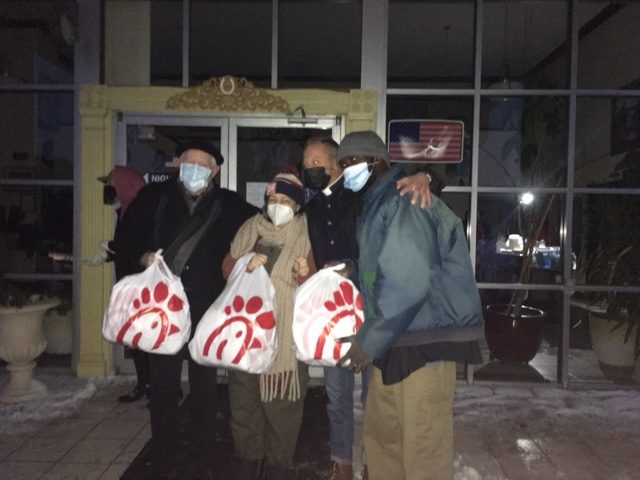
Talk to me about the local organizations in which you are involved and what they mean to you.
I chair the City the Tyler Area Partnership 4 Education, where we bring all education together from pre-K all the way to higher ed, post grad degrees and so on. We try to set the right environment to achieve the 60×30 plan, which is set by the TEA (Texas Education Agency). Our goal is that 60% of the residents in Tyler will achieve a certificate or an associate’s degree or some type of bachelor post secondary, higher ed degree and do it by 2030.
Why is 60% as a figure an important goal for 2030? What happens at that number?
That number was established by TEA, but it’s very simple to understand. It’s like herd immunity. When you get to a certain number of the population that has been vaccinated, then all of a sudden, you tend to shrink transmission of the virus or the susceptibility of the community to be impacted negatively by the virus.
Sixty percent literacy rate works the very same way. You’re creating a culture in your community that you wouldn’t think of not going to higher ed. You wouldn’t think of not participating in early college readiness.
We have the lowest educational outcomes in Texas for the entire state of Texas. Our education outcomes are even lower than the [Texas] Valley.
Do you know what the city’s literacy rate is right now?
I think that we’re at 39% to 41% — in that range. We’ve dropped four or five points just since March, just since pre COVID last year.
So the clock is ticking; we’re not getting there very fast. We were making great strides prior to COVID, but that six months, oh my gosh. That six months have now put us three to five years behind in achieving our goals.
All of our East Texas superintendents didn’t just see the results; they took action. They put the kids back in the classrooms and they put them back in the classroom safely. I support the efforts of all the superintendents to get the kids back.
Other things that I’ve been able to participate in: I voted to support Chief Coble, our fire chief, and to build the two new fire stations. We also ordered two new fire trucks.
And then you’ve got the water treatment plant I supported. The selling of bonds to update that water treatment plan, too. And there are others. Those are just the big ticket items.
Your opponent made a comment in The Tyler Paper about your participation on boards: “I know my opponent has a lot of boards, but I want to be the one that’s out there getting his hands dirty, representing the people.” Would you care to comment?
The reason for participating? You sit on boards, you make those connections so that you don’t have to try to figure who to call. You learn how the community works and you learn how to find real answers to real problems.
Whenever you give your service to non-profits and other boards in the community, you may have the opportunity to serve with really smart people. It changes how you look at life and the solutions you would even come up with yourself. All of my board servitude has been that same way.
Your opponent told The Tyler Paper “I want to be that person that the employees of Tyler can feel comfortable in coming to me … and maybe see what I can do on their behalf.” How would you respond to such a role?
Being the voice for City of Tyler employees? That’s not who we are. Council and the mayor has literally only one employee we manage and that’s the City Manager. Not that we don’t have input on organizational structure, but it’s not Council’s role or responsibility to intervene in employee issues with the city.
Good, bad or whatever, we do not evaluate staff.
We have a “call to serve” and make sure that we utilize all of the business principles that are used daily. You will see that our city runs more like a business than many cities across the state of Texas. There’s truly a multi-decade culture that exists within the City of Tyler.
You told The Tyler Paper, “The community will come together to help find a solution. I was enamored with that type of culture here.” Where do you see a can-do spirit in Tyler and what makes such a culture?
The can-do spirit exists in each of the committees that the Chamber addresses. They’ll find answers to problems that will help support the business community. They’ve got committees that address everything within the strategic plan that the city put together, Tyler First.
The Chamber takes that work plan and they apply it to the committee structure they already have in place.
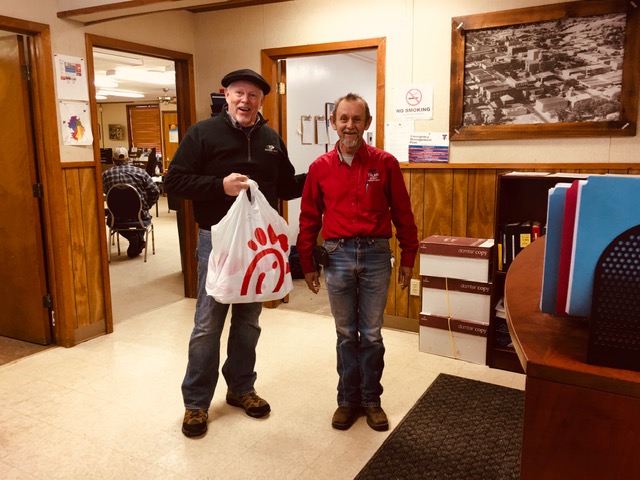
What are some of the challenges getting people out to vote? Is there a particular sector of folks you would like to see increasing their voting rights?
We are the biggest voting district in the city. The biggest challenge is that [voting] is truly not just an honor or a right, but an expectation of living in Tyler, living in Smith County, living in the state of Texas, living in our country.
Somewhere along the line, they have forgotten that it’s a responsibility. My wife and I, there are probably five elections in the last 48 years that we’ve missed in our entire married life. That’s local elections, state elections, national elections.
If families would begin teaching in the home just exactly what it means to vote and that it’s a responsibility and engagement that you should feel obligated to exercise. There’s not anything on a ballot that doesn’t directly impact you or indirectly impact you.
It has to start in the home and then the culture. In a city race the very first time I ran, I had an opponent like I do now, but I only had 900 people in my district out of about 16,000 that are registered to vote.
So, what is the impact of a city election? It should be much greater than that. I got elected with 60% of the vote and that percentage sounds high. But then when you think it’s only 900, the engagement would have been better if we’d had a higher turnout.
The beauty of our election system in Tyler is that our city elections are nonpartisan.You don’t get into being a Democrat or Republican or an Independent. You’re truly focused on servitude based on what your life experience has been, your connectivity to the community, your upbringing, your moral value.
I would love to see higher outcomes in city races.
The Tyler Paper said one of your goals entering office was to make yourself accessible and engaged as a conservative leader. Talk to me about the particulars of being a conservative leader. What does that mean to you? And what does that look like?
Number one, it’s being accessible. I was the first city councilman to have Coffee with a Councilman to create a forum. I did it and our fire stations. You have to be accessible to understand the needs of the community that you’re serving. Post COVID, we had to discontinue it obviously.
Getting back to the conservative side: Being a Cici’s Pizza franchise, you have to do an awful lot on a little bit of money. Having that culture and being able to manage budgets and get the very most out of your dollar is exactly what the City of Tyler does.
That is the fiscally responsible, conservative piece: Knowing that the city can’t pay for everything; the city can’t provide every good and service. You start to develop public-private partnerships.
Thank goodness for the Faulkner family. They’ve given money to the Parks Department. They have done more to help create a park culture in our community, and that was part of a key public-private partnership.
Also John Soules has his name on the John Soules School of Business on the UT Tyler campus. John was able to take the rewards of his life and give back to the community and supports the programs at UT Tyler.
If you have ownership in something, then chances are you’re going to help see it succeed. That’s that conservative piece also: knowing your limitations and being able to maximize your efforts or your money.
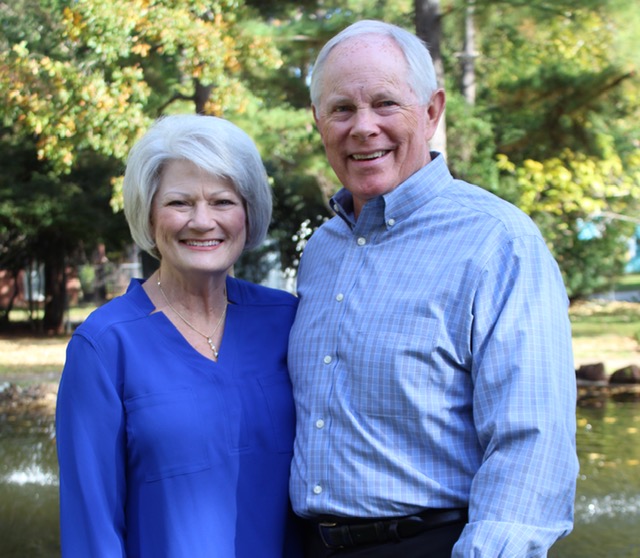
If you had one thing to pick for people to know about you, what would it be?
That I’ve been married 48 years. People say, ‘Oh, that’s so sweet, how in the world did you do it?’ And they want to hear some magic, one word explanation. I’m lucky because it takes hard work, and don’t think I didn’t step in a mud hole or two.
It takes two to make any relationship work. We worked equally hard. Being married 48 years is not a banner. It is a tremendous accomplishment, it’s truly the ultimate what-you-can-do-when-you-apply-yourself.
Is there anything else important for you to share that hasn’t been addressed yet?
City of Tyler is growing and we’ve got some real serious needs. How are we going to pay for it? We’re already having discussions about alternative forms of funding and financing and public private partnerships that we had never thought about before.
There’s a wonderful thing about Tyler politics having term limits. And not having a salary means that you get someone that truly wants to serve and improve the community because we’re not driven by paycheck.
We want people to know we have an incredible Council. For the first time in two years, we have a full Council. The perspective they bring helps me be a better councilman, and we don’t have to think alike to have respect for each other’s opinions or points of view.
Love what you're seeing in our posts? Help power our local, nonprofit journalism platform — from in-depth reads, to freelance training, to COVID Stories videos, to intimate portraits of East Texans through storytelling.
Our readers have told us they want to better understand this place we all call home, from Tyler's north-south divide to our city's changing demographics. What systemic issues need attention? What are are greatest concerns and hopes? What matters most to Tylerites and East Texans?
Help us create more informed, more connected, more engaged Tyler. Help us continue providing no paywall, free access posts. Become a member today. Your $15/month contribution drives our work.







